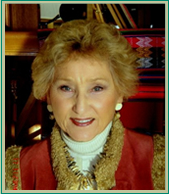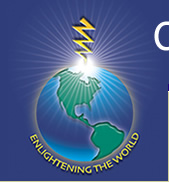
Balancing Leadership and Personal Growth
|
 |
|
| Christa Metzger Guest Contributor |
When Steve Sokolow first announced the theme for this issue, I said to myself, “Ah, this will be easy.” After all, I had published a book about this topic: Balancing Leadership and Personal Growth: The School Administrator’s Guide (Corwin Press, 2006).
So I waited to compose my contribution until just before the deadline. Now I’m wondering, “How do I summarize a 200-page book in a thousand words?” I started to list the key points from the book, but there didn’t seem to be much life in that. So I thought more globally about what I remembered most from writing the book and then reflected on what has become most important to me since then.
The part of that work that remains most alive for me is my conversations with the practicing school administrators whom I interviewed and surveyed. There is no question about the struggles they faced in coping with the stresses of their jobs. There is also no doubt about the difficulty they had in finding time for themselves, for their own personal growth, for reflecting on their values and priorities, and how those related to their decision making. Here are some of their comments:
- It is critical to an administrator to know oneself.
- Looking at the whole person includes the inner person —administrative training programs lack seriously in this whole area of the “person.”
- If we’d take more time to take care of ourselves, we’d be better for others.
- We have to get into the soul of what we personally value.
- We need to do more development of people in a holistic fashion as they come into leadership roles.
- Spirituality and relationships are key to an effective organization.
- The need for a balanced life is most important.
- Attention to self must be balanced with concern/connection with others.
- People who only work and don’t take care of themselves wind up having a heart attack.
- Walk your value of spirit.
- If there is no transformation inside each of us, all the structural change in the world will have no impact on our institutions.
I then asked administrators this question: “What practices do you use to cope with stresses, relax and get away from it all, nurture your soul, replenish your spirit, find renewal, create balance in your life, attend to your inner life?”
Here are the strategies used by administrators to become more balanced and pay attention to their personal growth. These are really spiritual practices that need to be incorporated into the daily life of a leader, both in the workplace and in personal life:
- Physical activities—Taking care of your body
- Reflective reading—Nourishing your spirit and soul
- Music, art, writing, and other creative work—Engaging transformative powers
- Time for and with yourself—Silence, solitude, and meditation
- Dreamwork—Knowing your whole self
- Spending time with those who care about you
So, have administrators become more balanced since I wrote my book? I believe that organizations such as the Center for Empowered Leadership, as well as persons like Paul Houston and others, have indeed created a climate of greater awareness for paying attention to all dimensions of living, especially the spiritual aspects of leadership. I applaud this trend and believe that it is affecting today’s educational leaders, helping them to fulfill their purpose as professionals as well as find their own personal meaning of their work and their lives.
Looking back, two things stand out as very significant to me now. First, I cannot emphasize enough how important it is to develop strong and consistent habits for incorporating personal growth practices into one’s life. In retirement, for example, I have more time available for these pursuits than when I was a school administrator or professor. However, I believe that if I had not disciplined myself to pay attention to a balanced life while still working, it might be more difficult to incorporate such practices into my life now. The old-time management axiom operates even in retirement: “Work expands to fill the time available for it.”
A second principle that has become increasingly clear to me is that personal growth is a journey, not a destination. It requires constant vigilance, repeated practice, and patience with ourselves to realize that we never really “get there”—except for a few precious moments now and then. Life always seems to throw us some crisis, and stress is a part of living. In stressful times, we need to be able to access tools that have become habits for us because we have practiced them during the good times of our lives.
Recently, a storm broke off a huge tree near our house. Its branches and leaves still looked healthy, but, on closer inspection, the inside of the trunk told a different story. The core was hollow, pockmarked with hundreds of holes—apparently gnawed out by insects that had burrowed into the channels which formerly supplied nourishment from the roots to the upper and outer parts of the tree.
Like this tree, we may appear to be doing just fine on the outside, providing shade and fruit to those who live under our branches (educators are famous for their selfless service). But we may break in the harsher winds that life can bring unless we consciously pay attention to the inner dimensions of our being. That’s what balance is about—keeping both inner and outer components, both personal and professional aspects of our lives in a synergistic connection with each other—vibrant, healthy, and whole.
![]()
Center for Empowered Leadership ®
Email: info@cfel.org
Phone: 1.609.259.7911
